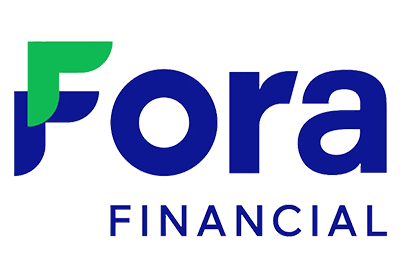When you hear the term "incremental cash flow," it might sound like one of those financial buzzwords that only accountants or Wall Street pros throw around. In truth, it's a super helpful concept, and understanding it can make a big difference when you're making business decisions. Whether you're a small business owner or an entrepreneur, this guide dives into incremental cash flow meaning and how calculating it can significantly help your small business.
What Is Incremental Cash Flow?
At its core, incremental cash flow is about understanding how much extra money a business will generate (or lose) if it takes on a new project or makes a particular decision. Think of it as the "what if" money. It's the difference between what you have now and what you could have after taking a specific action.
Imagine you own a coffee shop and are considering adding a new line of seasonal drinks. Before you decide, you want to know if the sales from those new drinks will bring in more cash than they'll cost to make. That's where incremental cash flow comes in. It shows you the additional cash flow resulting from the new drinks. If the extra sales outweigh the costs, it's a green light!
What is incremental cash flow in terms of making better business decisions? It measures the difference in cash flow generated by a new project or business decision compared to the status quo. It's the extra cash you'll have on hand if you take a specific step. This could be anything from launching a new product, expanding your business to another location, or investing in a new piece of equipment.
For example, if your business currently brings in $10,000 a month and you're considering launching a new service, you'd want to estimate how much that service could earn and what it might cost. If you project it'll bring in $2,000 a month in revenue but cost $500 to implement, your incremental cash flow is $1,500 per month.
How to Calculate Incremental Cash Flow
Now that we know what incremental cash flows are let's talk about calculating incremental cash flows. The formula itself is pretty straightforward:
Incremental Cash Flow = Cash Inflows - Cash Outflows
First, identify the inflows - the additional revenue or savings the project or decision will generate. Next, subtract the outflows, which are the extra costs or expenses associated with the project.
Here's a quick example:
Calculate Inflows: Estimate any extra income or savings from the project. For instance, if launching a new product line is expected to add $5,000 to your monthly revenue, that's your inflow.
Subtract Outflows: Factor in all the additional costs—materials, labor, marketing, etc. If these total $3,000, that's your outflow.
Using our incremental cash flow formula: $5,000 (inflows) - $3,000 (outflows) = $2,000 in incremental cash flow.
If your incremental cash flow is positive, the project is likely a good move. Negative? You might want to think twice before moving forward.
Examples of Incremental Cash Flow
Let's look at a few more examples to put it all into perspective.
Example #1: Say you're running a tech startup, and you're considering hiring additional developers to create a new software feature. You'll need to calculate the costs of those developers' salaries, any new software or tools they'll need, and other related expenses. Then, estimate how much revenue this new feature could generate over time. The difference between these numbers gives you your incremental cash flow.
Example #2: Perhaps you run an online store and consider adding an advertising campaign. You'll want to project the additional sales the campaign might bring and weigh that against the advertising costs. A positive incremental cash flow would mean the campaign could be worth it.
These examples show how this concept is flexible and can apply to different decisions, from small business moves to major corporate strategies.
The Importance of Positive Incremental Cash Flow
It's important because it helps you avoid bad decisions and focus on the ones that boost your business. Positive incremental cash flow means the project or decision will likely add value, increasing your profits. It's a way of doing a financial "gut check" before you commit resources.
Positive cash flow can also help you attract investors. If you show that a project will bring in more money than it costs, that's a big green flag for potential investors, making it easier to get funding. Plus, when your business consistently makes decisions that lead to positive cash flow, it's likely to grow and thrive over time.
When Incremental Cash Flow is Not Enough
Sometimes, even if a project shows a positive incremental cash flow, it might not be enough to justify moving forward. Maybe the profit margin is too small, or the project’s cash flow takes too long to materialize. For instance, if you’re making an investment that only returns a small profit over many years, the opportunity cost might be too high—you could invest those resources elsewhere for a quicker or bigger return.
You also need to consider risks. What happens if the projected revenues don’t match up with reality or if costs go up unexpectedly? It’s essential to look beyond just the numbers and think about the bigger picture.
What is a Cash Flow Loan?
If you find yourself in a situation where incremental cash flow isn't giving you the cushion you need, or if a project requires more upfront investment than your business has, a cash flow loan could be an option.
A cash flow loan is a type of short-term loan based on the cash flow your business generates, and it's a way to borrow against your expected earnings. This makes it a useful resource when you're confident a project will pay off but don't have the funds to start it immediately.
Lenders look at your current and projected cash flows to determine if you qualify, making it a quicker and more flexible option than traditional loans. Just remember not all lenders operate the same. The best cash flow loans & lenders should be flexible, fast, and support your business goals.
How a Cash Flow Loan Can Help
Why would I take on debt for a project? A cash flow loan can help bridge the gap when you know an opportunity will lead to positive incremental cash flow, but you need cash now. It provides a financial safety net that lets you seize opportunities without waiting for your revenue to catch up.
For example, if your business wants to launch a new product line before the holiday rush, but you don't have the funds for upfront costs, a cash flow loan can help you move quickly. You repay the loan with increased revenue once the holiday sales start rolling in.
Wrapping It Up
Understanding incremental cash flow is about making intelligent, data-driven decisions that drive growth and profitability. Knowing how to calculate and analyze incremental cash flow allows you to weigh the pros and cons of various business moves and seize opportunities confidently. And if your incremental cash flow looks promising but needs a little financial push, tools like cash flow loans can help turn those plans into action. Stay savvy, and you'll be in a prime position to grow your business with every decision you make.



